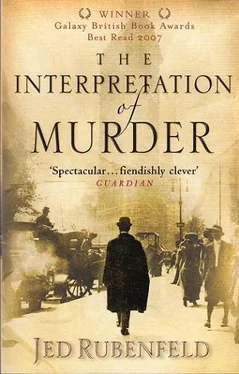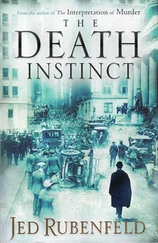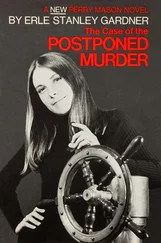Jed Rubenfeld - The Interpretation of Murder
Здесь есть возможность читать онлайн «Jed Rubenfeld - The Interpretation of Murder» весь текст электронной книги совершенно бесплатно (целиком полную версию без сокращений). В некоторых случаях можно слушать аудио, скачать через торрент в формате fb2 и присутствует краткое содержание. Жанр: Исторические приключения, на английском языке. Описание произведения, (предисловие) а так же отзывы посетителей доступны на портале библиотеки ЛибКат.
- Название:The Interpretation of Murder
- Автор:
- Жанр:
- Год:неизвестен
- ISBN:нет данных
- Рейтинг книги:5 / 5. Голосов: 1
-
Избранное:Добавить в избранное
- Отзывы:
-
Ваша оценка:
- 100
- 1
- 2
- 3
- 4
- 5
The Interpretation of Murder: краткое содержание, описание и аннотация
Предлагаем к чтению аннотацию, описание, краткое содержание или предисловие (зависит от того, что написал сам автор книги «The Interpretation of Murder»). Если вы не нашли необходимую информацию о книге — напишите в комментариях, мы постараемся отыскать её.
The Interpretation of Murder — читать онлайн бесплатно полную книгу (весь текст) целиком
Ниже представлен текст книги, разбитый по страницам. Система сохранения места последней прочитанной страницы, позволяет с удобством читать онлайн бесплатно книгу «The Interpretation of Murder», без необходимости каждый раз заново искать на чём Вы остановились. Поставьте закладку, и сможете в любой момент перейти на страницу, на которой закончили чтение.
Интервал:
Закладка:
So began a public and escalating quarrel between these two international celebrities. Forrest was driven from the boards in England, and when Macready came to America the favor was returned. Eggs of doubtful purity, old shoes, copper coins, and even chairs were catapulted from audience to stage. The culmination of the quarrel took place in front of the old Astor Place Opera House in Manhattan on May 7, 1849, when fifteen thousand belligerents gathered to disrupt a Macready performance. The inexperienced mayor of New York, who had taken office only the week before, called up the militia, and the order was eventually given to open fire on the crowd. Some twenty or thirty men died that night.
And all for nothing, my father would have said: for Hamlet. But that is how it always is. Men care most about that which is least real. Medicine, to me, stood for reality. Nothing I did before medical school seems real any longer; it was all play. That is why fathers have to die: to make the world real for their sons.
It is the same with the transference: the patient forms an attachment to the doctor of the most strenuously emotional nature. A female patient will weep for her doctor; she will offer herself to him; she will be ready to die for him. But it is all a fiction, a chimera. In reality, her feelings have nothing to do with the doctor, onto whose person she is projecting some violent, roiling affect properly directed elsewhere. The grossest blunder an analyst can make is to mistake these artifactual feelings, whether seductive or hateful, for reality. So I steeled myself as I strode down the corridor to Miss Acton's room.
Chapter Seven
The old woman let me in to Miss Acton's suite, calling out, 'Young doctor's here!'
The girl was perched on a sofa under the window, one leg tucked beneath her, reading what appeared to be a mathematics textbook. She looked up but did not greet me — understandable, since she could not speak. A chandelier hung from the ceiling, its teardrop crystals trembling slightly, perhaps an effect of the underground trains rumbling far below us.
Miss Acton was simply attired in a white dress with blue trim. She wore no jewelry. Around her neck, just above a delicate clavicle, was a scarf the color of the sky. Given the summer heat, there could be only one explanation for the scarf: the bruises on her throat would still have been visible, and she wished to conceal them.
Her appearance was so different from the night before that I might have failed to recognize her. Her long hair, a tangle last night, was now perfectly smooth and shining, gathered in a long braid. Shivering uncontrollably yesterday, she was today a picture of grace, her chin held high over her long neck. Only her lips remained slightly swollen where she had been struck.
From my black bag I removed several notebooks, along with a variety of pens and inks. These were not for myself but for Miss Acton, so she could communicate with me by writing. Following Freud's advice, I never took notes during an analytic session but transcribed the conversation from memory afterward.
'Good morning, Miss Acton,' I said. 'These are for you.'
'Thank you,' she said. 'Which one shall I use?'
'Whichever is — ' I began, before the obvious fact took hold. 'You can speak.'
'Mrs Biggs,' she said, 'will you pour the doctor some tea?'
I declined the tea. To the annoyance I felt at having been taken by surprise was now added the realization that I was a doctor capable of resenting a patient for improving without my assistance. 'Have you also recovered your memory?' I asked.
'No. But your friend, the old doctor, said it would all come back naturally, didn't he?'
'Dr Freud said your voice was likely to come back naturally, Miss Acton, not your memory.' This was a strange thing for me to say, given that I wasn't at all sure I had it right.
'I hate Shakespeare,' she replied.
She kept her eyes on mine, but I saw what had prompted this inconsequent remark. My copy of Hamlet was poking out of the stack of notebooks I had offered her. I retrieved the play, putting it back in my bag. I was tempted to ask why she hated Shakespeare but thought better of it. 'Shall we begin your treatment, Miss Acton?'
Sighing like a patient who had seen too many doctors, she turned and looked out the window, offering her back to me. Evidently the girl thought I was going to use my stethoscope on her or perhaps examine her wounds. I informed her that we were only going to talk.
She exchanged a skeptical glance with Mrs Biggs. 'What sort of treatment is that, Doctor?' she asked.
'It is called psychoanalysis. It's very simple. I must ask your servant to excuse us. Then, if you will be so good as to lie down, Miss Acton, I will ask you questions. You need only say whatever comes into your mind in response. Please don't be concerned if what occurs to you seems irrelevant or unresponsive or even impolite. Just say the first thing that comes to mind, whatever it is.'
She blinked at me. 'You are joking.'
'Not at all.' It took several minutes to overcome the girl's hesitation — and then several more to overcome her servant's declaration that she had never heard of such a thing — but at last Mrs Biggs was persuaded to go and Miss Acton to recline on her sofa. She adjusted her scarf, straightened the skirt of her dress, and looked appropriately uncomfortable. I asked if the injuries to her back troubled her; she said no. Positioning myself on a chair out of her sight, I began. 'Can you tell me what you dreamt last night?'
'I beg your pardon?'
'I am sure you heard me, Miss Acton.'
'I don't see what my dreams have to do with it.'
'Our dreams,' I explained, 'are composed of fragments from the previous day's experiences. Any dream you recall may help us recover your memory.'
'What if I don't want to?' she asked.
'You had a dream you would prefer not to describe?'
'I didn't say that,' she said. 'What if I don't want to remember? You all assume I want to remember.'
'I assume you don't want to remember. If you wanted to remember, you would.'
'What is that supposed to mean?' She sat up, glaring at me with undisguised hostility. As a rule, I am not often hated by people I have only recently met; this case appeared to be an exception. 'You think I am pretending?'
'Not pretending, Miss Acton. Sometimes we don't want to remember events because they are too painful. So we shut them out, especially childhood memories.'
'I am not a child.'
'I know that,' I said. 'I meant you may have memories from years ago that you are keeping out of your consciousness.'
'What are you talking about? I was attacked yesterday, not years ago.'
'Yes, and that is why I have asked you about your dreams last night.'
She looked at me suspiciously, but with considerable cajoling I induced her to lie down again. Gazing at the ceiling, she said, 'Do you ask your other female patients to describe their dreams, Doctor?'
'Yes.'
'How entertaining that must be,' she remarked. 'But what if their dreams are very dull? Do they invent more interesting ones?'
'Please don't be concerned about that.'
'About what?'
'About your dreams being dull,' I answered.
'I didn't have any dreams. You must adore Ophelia.'
'I'm sorry?'
'For her docility. All of Shakespeare's women are fools, but Ophelia is the worst.'
This took me aback. I suppose I always have adored Ophelia. In fact, everything I know of women, I feel I learned from Shakespeare. Miss Acton was obviously changing the subject, and while one can of course be waylaid, it is sometimes useful in analysis to play along with these evasions, since they often lead back to the crux of the matter. 'What is your objection to Ophelia?' I asked.
Читать дальшеИнтервал:
Закладка:
Похожие книги на «The Interpretation of Murder»
Представляем Вашему вниманию похожие книги на «The Interpretation of Murder» списком для выбора. Мы отобрали схожую по названию и смыслу литературу в надежде предоставить читателям больше вариантов отыскать новые, интересные, ещё непрочитанные произведения.
Обсуждение, отзывы о книге «The Interpretation of Murder» и просто собственные мнения читателей. Оставьте ваши комментарии, напишите, что Вы думаете о произведении, его смысле или главных героях. Укажите что конкретно понравилось, а что нет, и почему Вы так считаете.












